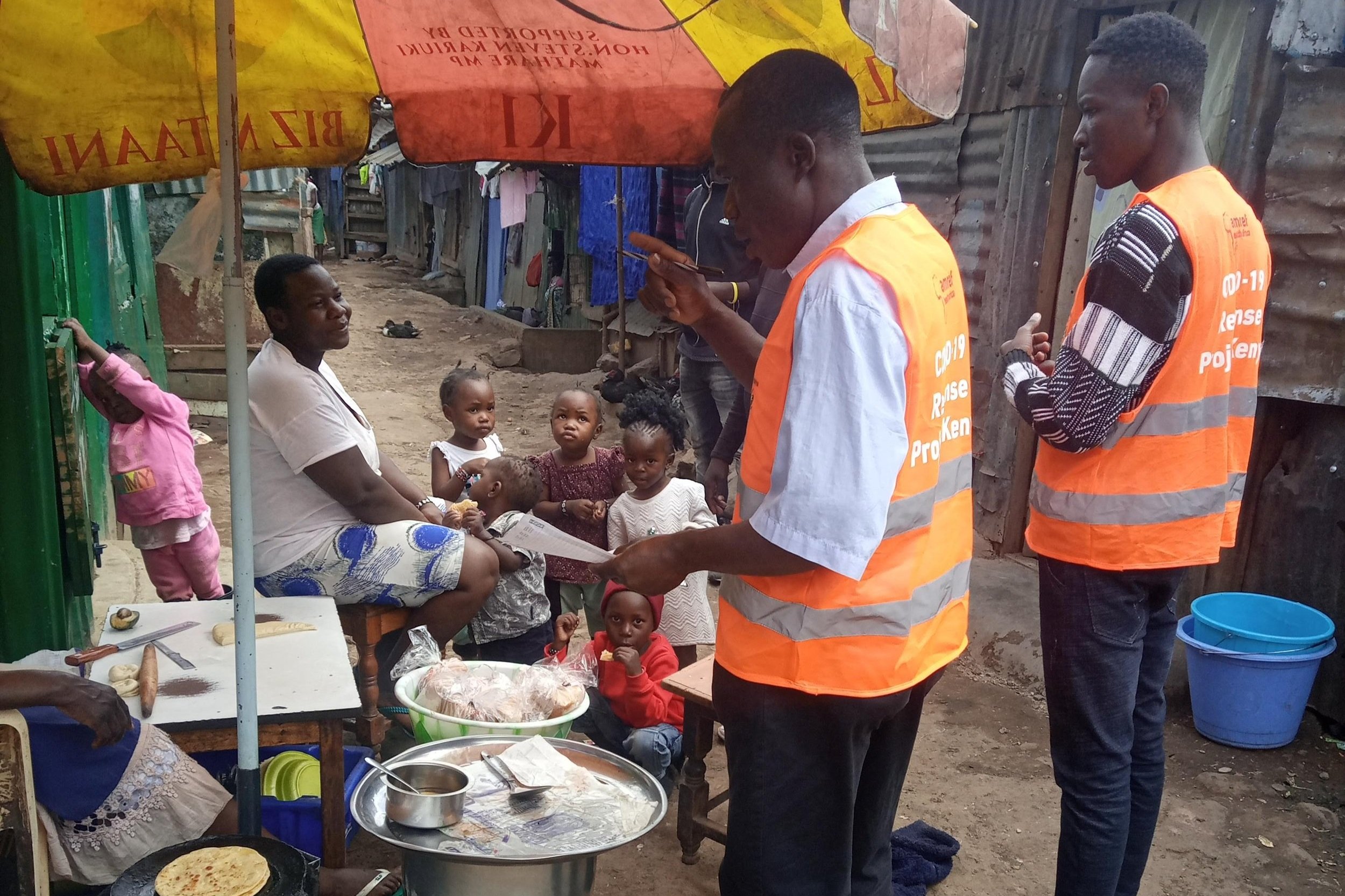Frontline Heroes: Community Health Volunteers as First Responders in Community Health Care
By Jacob Omondi
Good health is crucial for the socio-economic progress of any community. It is not only a fundamental right but also a duty for everyone. All individuals, households, families, and communities have a role to play in promoting good health at various levels. In Kenya, the community approach has been adopted to empower communities to enhance and sustain their health status, enabling them to participate fully in the nation's development and achieve Vision 2030.
Community health volunteers play an integral role in ensuring that their community members live in safe and clean environment free from diseases. Furthermore, their passion and enthusiasm towards offering first health assistance through referral of patients, creating community awareness, door to door sensitization, and advocating for human rights by upholding article 43(1) (a) of the Kenyan Constitution "Every person has the right to the highest attainable standards of health, which includes the right to healthcare services and including reproductive healthcare."
The Community Health Policy 2019 in Kenya is a government initiative aimed at improving the health outcomes of people in the country by enhancing the capacity of community health workers to provide essential health services. The policy acknowledges that community health workers play a crucial role in delivering health services to people who may otherwise not have access to them. It emphasizes the need to strengthen the community health system, increase the number of community health workers, and improve their training, supervision, and support. The policy recommends the adoption of a community-led approach to health service delivery, where communities are actively involved in identifying their health needs and designing interventions to address them. In terms of distribution, the policy advocates for an equitable distribution of health resources to ensure that marginalized communities have access to essential health services.
In Kenya, the Community Health Strategy aims to provide essential preventative and therapeutic services. In addition to other duties, Community Health Volunteers (CHVs) visit households, deliver health education, treat common maladies, and create standards for community-based maternal and newborn health. The Community Health Units (CHUs), which provide healthcare to about 5,000 Kenyans (1000 households), are where the CHVs work under the supervision of Community Health Assistants (CHAs). Approximately 10 CHVs are assigned to each Community Health Unit and are under the supervision of Community Health Assistant (CHAs), who are employed by the government and in charge of facilitating referrals and connections to healthcare facilities as well as delivering health services to households and communities.
In Mathare Valley, there are 50 Community Health Units and 510 Community Health Volunteers who are serving approximately 100 households. This is mainly because informal settlements grow by day which leads to an increase in households. Also given the form of informal settlements, accessing some of the households as a result of congestion of the houses, makes it difficult for the CHVs to navigate to patients while providing first aid or referrals to the nearby government hospitals.
Muungano Wa Wanavijiji and Slum Dwellers International-Kenya through the Mathare Special Planning Area Research Collective (MSPARC) program, aims at provision of services such as water and sanitation facilities, access to quality educational facilities, construction of roads and improved housing and lastly access to quality and affordable healthcare for all, saw the need of supporting local community health volunteers with a proper way through which they can easily offer assistance to the community. This is mainly by using the numbering system that easily be identifies the households they serve, which the community came up with when doing settlement profiling. To ensure ownership of the process, community members and community health volunteers were mobilized from each and every village within Mathare valley and underwent a vigorous training on how to carry out mapping of community health volunteers. In addition, through the ARISE program, we were able to conduct CHVs profiling process in all the 13 villages in Mathare.
According to Brian, a community health assistant (CHA), “some of our community health volunteers that participated in the mapping exercise organized by Muungano Wa Wanavijiji and Slum Dwellers International-Kenya brought out positive feedback, one when it comes to navigating to patients who urgently need health assistant at the household level, secondly we will use information gathered to easily deliver healthcare services such as immunization of various diseases, door to door community awareness on health matters. We are currently having an ongoing engagement on how to scale up the CHVs mapping process in other informal settlements in Nairobi, when it comes to provision of healthcare services.”
Caption: Sensitization of Covid 19 vaccination by community health volunteers in Mathare . Photo credit Muungano KYCTV

